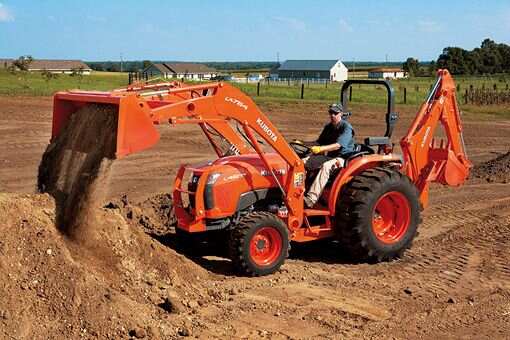Some Information You Should Know about Hydraulic Filter
February 16,2022
john deere 770 hydraulic filter,john deere 4200 hydraulic filter,john deere 1010 hydraulic filter
Hydraulic filters play a very important role in hydraulic systems and are used on a large scale in many industries, such as machining, petrochemicals, textiles, and more. In this blog we will mainly introduce it to you.

What is the structure of the hydraulic filter?
General hydraulic filter is mainly composed of filter element (or filter screen) and shell (or skeleton). The flow area of the oil is composed of numerous tiny gaps or pores on the filter element. Therefore, when the size of impurities mixed into the oil is larger than these tiny gaps or pores, they are blocked and filtered out of the oil. Since different hydraulic systems have different requirements, it is impossible to completely filter the impurities mixed into the oil, and defects may exist.
What types of hydraulic filters are there?
- According to the function, it can be divided into: self-cleaning filter, automatic filter, brush filter, elastic filter, etc.;
- According to the type of filter material, it can be divided into: cartridge filter, bag filter, softened water filter, activated carbon filter, quartz sand filter, fiber filter, manganese sand filter, etc.;
- According to the connection method, it can be divided into: security filter, bag filter, mechanical filter, stainless steel ozone mixing tower, single-stage filter, two-stage/double-stage filter, three-stage filter, etc.
How do hydraulic filters work?
The function of the hydraulic filter is to filter various impurities in the hydraulic system.
The main sources are: mechanical impurities still remaining in the hydraulic system after cleaning, such as rust, casting sand, welding slag, iron filings, paint, paint skin and cotton yarn scraps, etc.; Dust entering the dust ring, etc.; impurities generated during the working process, such as the debris formed by the hydraulic action of the seal, the metal powder generated by the relative wear of the movement, the colloid, asphaltene, carbon residue, etc. generated by the oil due to oxidative deterioration .
After the above impurities are mixed into the hydraulic oil, with the circulation of the hydraulic oil, it will play a destructive role and seriously affect the normal operation of the hydraulic system, such as making a small gap (measured in μm) between the relatively moving parts in the hydraulic components and throttling. Small holes and gaps are stuck or blocked; destroy the oil film between the relatively moving parts, scratch the surface of the gap, increase internal leakage, reduce efficiency, increase heat, aggravate the chemical action of the oil, and make the oil deteriorate.
According to production statistics, more than 75% of the failures in the hydraulic system are caused by impurities mixed in the hydraulic oil. Therefore, the hydraulic system needs to maintain the cleanliness of the oil and prevent pollution of the oil.
How to choose the correct hydraulic filter?
- Clear design requirements: clear system pressure, flow rate, hydraulic oil grade, and working temperature;
- Determine the filtering accuracy level required by the system;
- Determine the type of filter according to the installation position and operating pressure of the filter in the hydraulic circuit;
- Determine the size of the specification: first pre-selection based on experience or pre-selected nomogram, and then calculate and calculate its initial pressure drop, if it is greater than the aforementioned recommended value, you need to re-select a filter with a larger flow specification;
- Determine the pollution signalling method, bypass, etc. of the filter.
We are a professional Kubota hydraulic filter manufacturer, including but not limited to john deere 770 hydraulic filter,john deere 4200 hydraulic filter,john deere 1010 hydraulic filter, for more information, please feel free to consult us, we are happy to serve you.